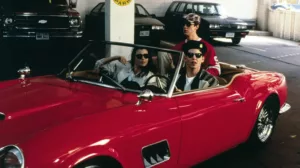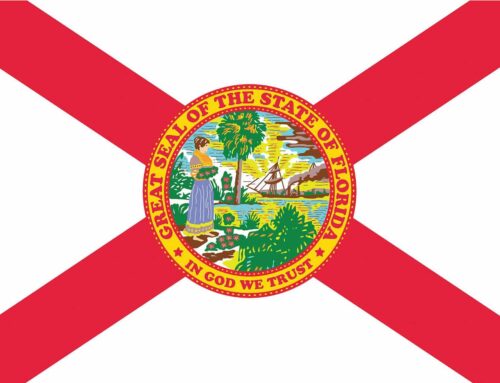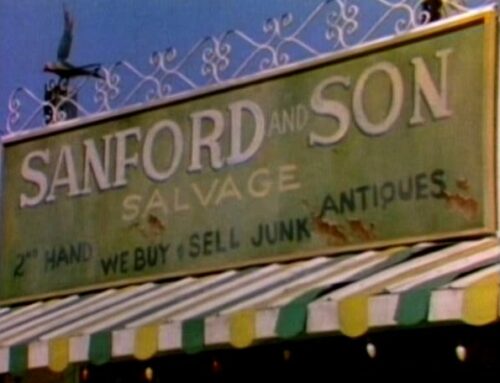Insuring an exotic car, high-performance sports car, ultra-luxury vehicle or collectible is different than insuring your nephew’s Toyota Taurus.
It’s not just that the dollar amounts are higher. Car insurance policies in this market have to be structured in a completely different way compared to the standard methodologies.
In fact, many major car insurance companies won’t even touch cars above the $200,000 mark or so.
Even if they’ll consider your car on paper, it’s a bad idea just to go with an internet quote from a car insurance agent who doesn’t personally work in the speciality, non-standard car insurance market all the time.
This isn’t a job for the strip mall agent or the call-center drone. You need someone making a career out of insuring specialty cars and high-risk drivers.
Actual Cash Value vs. Agreed Value.
The first and possibly the most important thing to be aware of is how car insurance companies approach valuation.
With most car insurance policies, the carrier assesses close to full value when the car is brand new. Then the car’s value steadily depreciates as the car accumulates mileage, use, and age.
If a car is totaled, a normal car insurance policy would subtract all of that depreciation to calculate the actual cash value of the car. Which is invariably much less than the price of the car when you bought it. Then they subtract the deductible, and only pay out what’s left over.
But with certain well-cared for collectible and exotic cars, this depreciation doesn’t happen! If you buy a standard fair market value car insurance contract and the car gets totaled a couple of years later, the check you get from the insurance company won’t even come close to making you whole after the loss.
If you’re not careful, your car’s value will get higher and higher (that’s a good thing) but the insured amount will get lower and lower over time. The greater the gap between the car’s actual value and the amount the insured company calculates as the fair market value, the greater your risk.
Many a driver has been devastated to receive a check for half of their replacement cost or less, because they didn’t grasp the impact of depreciation on fair market value, which has nothing to do with replacement cost.
Note: Don’t confuse car depreciation with tax depreciation. You can claim a deduction for “depreciation” on business assets, even as they go up in value. Real estate investors do it all the time!
Instead, most properly-drafted exotic car insurance policies are based on agreed value, rather than fair market value.
With these policies, there’s no depreciation calculation. Because both you and the insurance company know that if you care for the car, the car’s probably not going to depreciate!
With an agreed value policy, you and the insurance carrier will simply agree in advance on the payout, without depreciation, and before the policy is issued. The agreed value is listed in black and white on the contract.
In some cases, the contract will project price appreciation – accounting for both inflation and both party’s best guess as to the market for similar cars in the future. This value could very possibly be much higher than the car’s current value after a few years. If the car is totaled (and you adhered to the other terms of the contract! More on that later) the carrier will pay out the full agreed value as stated on the policy.
The insurance policy will then pay out that amount minus the deductible, regardless of market fluctuations.
This type of policy provides much better protection against the financial loss of an exotic or collector car.
And naturally, you’ll have to pay more for it!
The good news is that most insurance players in this market are “car guys” themselves. They have agents that regularly go to car shows and speciality auctions.
Unlike your run-of-the-mill strip mall car insurance agent, these guys know the deal. As long as they can charge a reasonable premium for the risk, they are willing to agree to a reasonably high value for your car.
Just not so high that they will begin to create an incentive for insurance fraud.
Some agreed value polices have a mechanism to pay up to 150% of the original insured value of the car if the market for similar cars takes off. But the insurance carrier will always price that risk to themselves into the policy.
Repair costs
Insurance companies have to account for the cost of repairing insured vehicles that aren’t totaled. But repair costs are far higher for exotic and specialty cars than they are for your brother-in-law’s Chevrolet Cruze.
Chances are the local mechanics and retail auto parts stores don’t have the parts lying around. They have to special order parts. And there isn’t much of an after market for used parts or knockoffs. Most of the parts will have to come from the manufacturer and be custom ordered.
Likewise, repairing an exotic car, antique, or hot rod isn’t just a matter of dragging the car to the closest Pep Boys. The repairs will need to be done by specialized mechanics, some of whom have waiting lists – and which charge a significant premium compared to the neighborhood shops.
All these things contribute to the premium.
Miles and Use Limitations
Many collectible car insurance policies require that all drivers in the household be age 25 or older.
With agreed value contracts, miles and use limitations are usually pretty strict. Your carrier may cap the number of miles you drive per year at 2,000 to 6,000 or even less. You may have to agree not to use your vehicle for commuting at all, or only for driving to car shows or the track and back. If you want to use the car for an occasional commute to work, you might have to buy an additional endorsement.
You may have to promise you will only store the car in an enclosed and secure garage.
It’s also common for carriers to require that every member of the household have their own insurance and their own car. This is to reduce the risk that you’ll “lend” your exotic car to your daughter for the weekend. Sure, you love your stepdaughter.
But you also know your daughter.
So you understand why.
Also, many policies also require that all other drivers in the household be age 25 or older, with good driving records.
Roadside Assistance
If your Precious breaks down somewhere, you might want to call Roadside Assistance for a tow. But for high value cars, you don’t want just any tow truck. Standard lift tow trucks tend to bang up cars. You want a policy that will hook you up with a guaranteed flatbed.
Not every car insurance agent would think of this. But specialty car agents deal with this all the time.
Sometimes Classic or Collector Car Insurance is Cheaper!
In some cases, you can actually get a price break for insuring a classic or collector car. This is because insurers know that collectors don’t drive them much. They sit in the garage and just get out to car shows and weekend scenic drives. They aren’t hard-core commute cars, and they aren’t often parked in bad neighborhoods.
This is yet another reason to speak with a career insurance agent who specializes in the non-standard market.
Don’t Bother With the Big “Quote” Sites.
Sure, you can get some great free quotes on our site for insuring your “normie” cars. But those quote engines are based on actual cash value policies. Those aren’t relevant to the exotic car insurance market or the high-performance car market.
Invest in some driver training.
High performance cars are dangerous in the wrong hands.
Heck, they’re dangerous in the right hands, too.
Insurance companies know this. And when someone comes in with an application for a McLaren 675LT, they’re going to look very carefully at who’s going to be driving it.
If you’re young (I’m looking at you, pro athletes and crypto bros!) and/or you have a less-than-pristine driving record, invest in some specialized training, so you can learn how to drive these beasts responsibly.
Then hand proof of your training to your car insurance agent to attach to your application.
That shows the car insurance underwriters two important things:
1.) That you know how to handle high-performance cars, and,
2.) You take your responsibility as a driver and owner seriously.
High-end, exotic car insurance applications are underwritten manually. They have a real live human looking at your file. Not a computer algorithm.
Investing in professional training will help you on the app – especially if your application is otherwise marginal.
Plus, it’s fun as heck. Highly recommend.
Contact a specialty car insurer today.
If you own or are considering owning or leasing a high-value car, whether it’s got a $200,000 or $2 million price tag, call the specialists at Select Insurance Group today.
Don’t bother with the quote engine at this point. Pick up the phone and ask to speak with an agent. We’ll work up some custom coverage for you. And we’ll take care of you. Because we want to insure all your cars!
Even the one your daughter drives!
See you on the road!
Steve “Mr. Insurance” Ludwig
President, CEO, and all-around car guy,
Select Insurance Group






